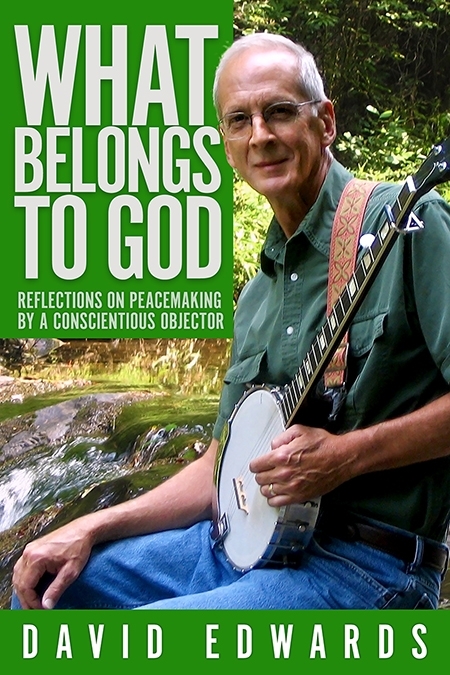
“We often think of peace as the absence of war, that if powerful countries would reduce their weapon arsenals, we could have peace. But if we look deeply into the weapons, we see our own minds—our own prejudices, fears and ignorance.”
Thich Nhat Hanh
Living Buddha, Living Christ
STUDY GUIDE – INCLUDED IN THE BOOK
CHOOSING PEACE
A Discussion and Action Guide for What Belongs to God
By Kaye Edwards and Jason C. Stanley
Why Should We Discuss This Book?
This discussion and action guide is designed to spark self-examination and community action on peace-and-justice issues in today’s world. So many urgent challenges are related to those issues, today, that you may wonder why we should think and talk about what it means to become a conscientious objector. One vital reason is to address the “unofficial draft” that channels many young people, especially in poor and marginalized communities, into the armed forces as one of the only career opportunities available to them. We can start with the question: Why are there so few alternatives? Why are we—as a country and as individuals—not creating more ways for people to serve our country, afford a college education and build a hopeful future without agreeing to participate in war?
The question of choosing peace, and objecting to war, also invites us to examine the many ways we, perhaps unknowingly, contribute to the lack of peace and justice within ourselves, our families, our communities and the wider world. In the words of Thich Nhat Hanh, “We often think of peace as the absence of war, that if powerful countries would reduce their weapon arsenals, we could have peace. But if we look deeply into the weapons, we see our own minds—our own prejudices, fears and ignorance.” (from Living Buddha, Living Christ)
By discussing this book, we will together find ways to promote peace through the daily living of our own lives. Our congregations can develop programs to help people of all ages find ways to serve the community and the country that contribute to peace and serve justice. We have written this guide hoping to foster a deeper understanding of ourselves and a greater awareness of the many ways we all can encourage peace.
The material presented in the study guide is designed for a three-day, two-night retreat. However, the guide can be adapted for a one-day workshop or a more comprehensive study for multiple weeks. If done as a one-day workshop, we recommend planning for a five to six hour day. If working with a large group, it might be helpful to break into smaller groups for some of the discussions and activities.
Free Study Guide Resources
The following resource pdf files are free to download, copy, and distribute.

About the Study Guide’s Co-Author: the Rev. Jason C. Stanley
The Rev. Jason C. Stanley is an ordained deacon in the United Methodist Church, committed to helping churches see and address the needs of justice and compassion in their communities.
Jason holds a Masters in Christian Education from Union Presbyterian Seminary in Richmond, Virginia. He has contributed to curriculum resources including a curriculum that accompanies the Rev. Dr. Michael W. Waters’ book Stakes is High (Chalice Press) and to the Faith & Justice youth curriculum produced by the General Board of Church and Society of The United Methodist Church.
You can find Jason at JasonCStanley.com.